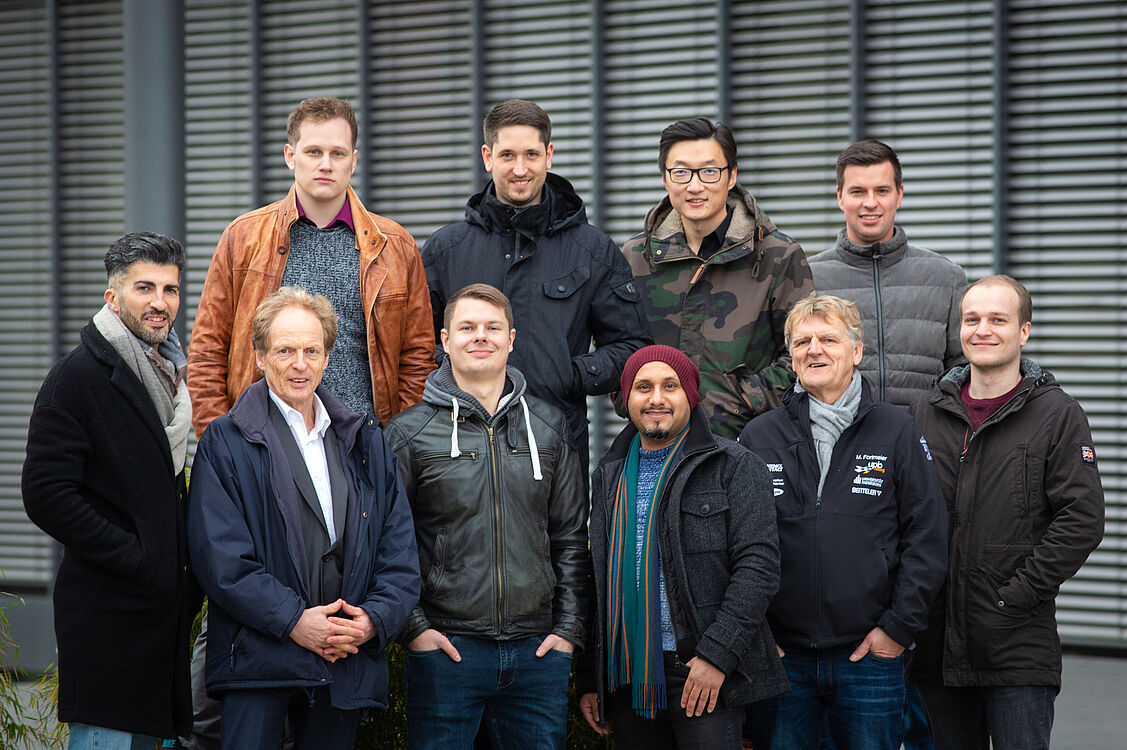Prof. Dr.-Ing. Rolf Mahnken retires
On 29 February 2024, Professor Mahnken retired after an impressive career. As a founding member of the ILH, he played an active role in shaping the focus on lightweight construction with hybrid systems at the Paderborn University for eleven years. We wish him all the best for the future, good health and time with his family.
LTM - Engineering Mechanics

The Chair of Engineering Mechanics (LTM) focuses on experiments, modelling and numerical methods with the aim of efficiently simulating large-scale finite element structures with innovative materials. Applications are e.g. crash simulation of adhesive materials, solidification behaviour and hardening of polymers or phase transformations and damage in metals. Other fields of work are parameter identification with the help of optimisation methods to verify the models, adaptive finite element methods and homogenisation methods to take multi-scale processes into account. Stochastic models are used to generate further synthetic data in order to minimise the costs of expensive and time-consuming experiments.
Read more on the page of the research group.
Methodical competence
- Tensile / compression tests
- Cyclic tests
- Thermal shock
- Optical 3D measurement (GOM Aramis / Atos)
- FEM simulation (Abaqus)
- Modelling of material laws and elements
- Parameter identification (homogeneous + inhomogeneous)
- Implementation of material laws for commercial FE software (Abaqus, UMAT, UEL)
Topics
Experimental investigations
- Thermal shock
- Experimental investigations of high temperature components
- Cyclic tensile tests under high temperature
- Tensile-compression tests of epoxy resin-bonded casting sand
- Optical measurement of inhomogeneous rubber samples
- Strain rate dependent tensile tests of/with CFRP prepregs
Modelling
- Phase field modelling of high temperature components
- Phase transformation plasticity
- Multi-scale modelling of heterogeneous material systems such as multilayer tool coatings
- Anisotropic hardening behaviour of polymers
- Adhesive layer failure with stochastic methods
- Curing of epoxy resin based materials
Parameter identification
- Parameter identification of non-linear materials using optical methods
- Parameter identification with stochastic methods
Simulation
- Adaptive mesh refinement for parameter identification and phase field simulation
- Simulation of manufacturing processes considering phase transformations
- Simulation of anisotropic plastics due to stretching process
- Simulation of inelastic adhesive layers and fibre-reinforced plastics of lightweight automotive construction
- Development of numerical methods for efficient simulation of finite element structures
- Forming simulation of uncured prepregs
- Curing simulation of epoxy resins

